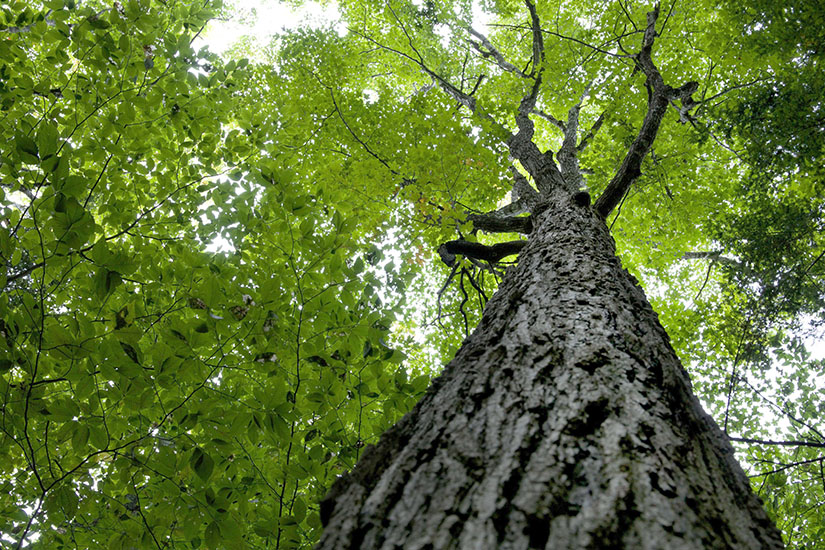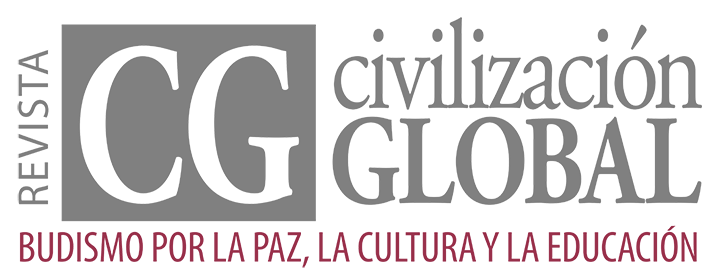In this section we offer resources for SGI-Spain’s discussion meetings and, this month, for the “friendship meetings” taking place in different venues. We do this with an extraordinary format, following the section titled “Especial.”

QUESTIONS
What is the correct way to live?
Where do we find true value?
Is it possible to look to the future with hope? How can we do it without avoiding reality and its difficulties? Can we transform reality? How?
Are we happier alone or together with other people? (Sometimes, people hurt others.) Is it naive to trust other people? Is it a weakness to try to learn from others? Or is it an attitude which is necessary in order to become truly strong, truly happy?
We all ask ourselves questions… Sometimes, we are more or less aware of them. Other times, we aren’t as our questions are imperceptible until, given the appropriate circumstances, they take shape and we become aware that, in fact, they were already with us.
In the first Soka Gakkai discussion meeting which a young Daisaku Ikeda attended 75 years ago this month,[1] the trust that the personality of Josei Toda awakened in him lead him to ask him out loud and together with other questions, precisely that first question that said “What is the correct way to live?”[2]
ANSWERS
When, years later, Ikeda Sensei has recalled the answer given by Josei Toda to that fundamental question, something he has done in some essays, we can say that he has given the same or even more space to the spirit that backed up that answer than to the answer itself.[3] He was touched by that person who he took as a mentor on that day, by his deep respect (for him, a common youth who he had just met), by his total honesty, by his clarity that did not diminish the depth, by his conviction based on experience. And, that he concluded with an invitation to also have an experience, which was to find the truth of what he had responded through giving the practise of Nichiren Buddhism a try himself.
EXPERIENTIAL DIALOGUE
Although we refer to that first meeting of the 14th of August 1947 as a discussion meeting, which essentially it was, from the SGI-Spain’s point of view, its format was probably more similar to a study lecture, with a lecture that was followed by a question and answer session.
Differing from a study lecture in which there is usually a team in charge of lecturing and eventually answering the questions related to the subject addressed, the spirit of SGI-Spain’s discussion meetings is one of a “round table,” a “meeting of people well versed in a certain subject […] with no hierarchy between the participants.”[4] What is the subject in which the participants are well versed? The construction of “a life dedicated to greater good.”[5]
The members of a discussion meeting, and probably non-members who have most settled in in it, are dedicated to this noble undertaking as practitioners of Nichiren Buddhism in Soka Gakkai. Those who attend for the first time as guests, if they have taken that brave step, are also imbued in that type of construction process, probably looking to broaden their resources in order to carry it out. Together, as equals, they can share questions, answers and, above all, experiences.
Discussion meetings should not become highly theoretical or formal. On the contrary, as already shared previously in the pages of this magazine, an indicator of the strength of a discussion group is that all its participants wish to share an experience related to how they are advancing in their lives. A Soka Gakkai discussion meeting should essentially be just that, an experiential dialogue.
From this section we make a monthly proposal of, as read at the beginning, “resources for SGI-Spain’s discussion meetings.” Its aim is simply to help break the ice at the start to lead to the type of open dialogue which we are talking about as soon as possible. The discussion meeting programme should be simple and should have at its centre dialogue.
SILENCES
In a dialogue we should not fear silences.
Of course, in daily life we sometimes come across silences which are a manifestation of coldness, lack of empathy or commitment, cowardness etc. Silences which, to sum up, are hurtful.
But there are silences which are positive and necessary; silences that introduce words which are spoken from the heart, words that require time to emerge.
In this sense, in one occasion Ikeda Sensei himself quoted the French scientist and essayist Albert Jacquard (1925-2013), who, due to the contemporary proliferation of a “communication canned or frozen,” defended “the bursts of creativity that come naturally in the course of a dialogue compromising moments of silences as well as words.”[6]
TO EMERGE DANCING
The encounter between Toda and Ikeda whose 75th anniversary has motivated this section, inspired in the latter, together with the questions posed as such, an impromptu poem also starting with questions: “Traveler, / Where do you come from? / And where do you go?”[7]–, but it ended with a statement: “I spring from the earth.”[8]
We can say that the success of a Soka Gakkai discussion meeting is found in nourishing this type of decision in the participants, resounding with the emergence of the Bodhisattvas of the Earth described in the Lotus Sutra.
We are happy to conclude this article remembering a characteristic of this episode, highlighted by Nichiren Daishonin and which states: “When Bodhisattva Superior Practices emerged from the earth, did he not emerge dancing?”[9]
[1] ↑ See the section “Especial” in this issue.
[3] ↑ Josei Toda answered: “Many difficult problems arise over the long course of life. We must find the answer to the question of life and death. This is the key. Unless we find the correct answer to that, we cannot lead a truly correct life.” See Civilización Global, issue 159, July 2018, section “Estudio mensual”, p. 22.
[4] ↑ Tentative translation of an extract of the definition provided by the Real Academia Española dictionary.
[5] ↑ See the section “Especial” in this issue.
[6] ↑ JACQUARD, Albert: Petite philosophie à l’usage des non-philosophes (A Modest Philosophy for Non-Philosophers), París: Calmann Lévy, 1997, p. 18. Quoted in IKEDA, Daisaku: Toward a World of Dignity for All: The Triumph of the Creative Life. 2011 Peace Proposal.
[7] ↑ See the section “Estudio mensual” in this issue.
[9] ↑ Great Evil and Great Good, in WND-1, p. 1119.
